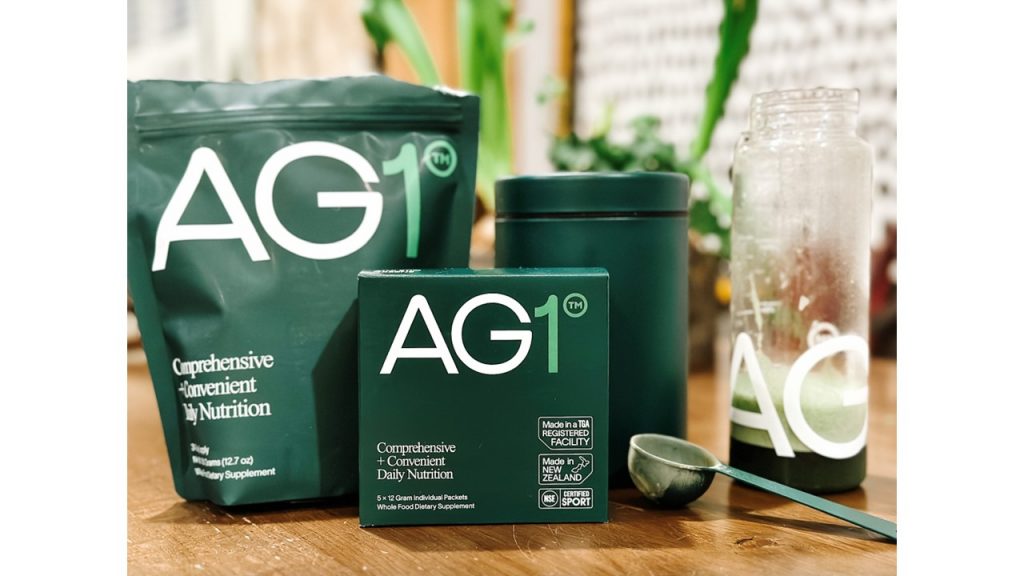Key Points:
- Huberman strongly believes that proper nutrition and excellent behavioral protocols are the foundation of good mental health, physical health, and performance.
- Huberman stresses the importance of satisfying foundational health needs with broad-spectrum supplements (like multivitamins) before experimenting with single-ingredient formulations that can augment specific aspects of health, like sleep, hormone support, and cognitive function.
- Before starting supplementation, Huberman recommends that individuals prioritize developing a rational supplementation protocol that is both biologically- and cost-effective.
In a noteworthy episode of the number 1 Health and Fitness podcast on Spotify, the Huberman Lab Podcast, Stanford neuroscientist Dr. Andrew Huberman shares his blueprint for developing a rational approach to nutrient supplementation to optimize mental health, physical health, and performance.
Huberman starts the episode by highlighting the misconception that all supplements are solely intended to compensate for nutritional deficiencies, which is simply not the case. He goes on to say that many supplements consist of compounds not readily available or in sufficient quantities in food, demonstrating the pivotal role supplementation plays in addressing specific health needs and optimizing overall well-being when conventional dietary sources may fall short.
That being said, he stresses that the primary objective of the episode is not to solely focus on identifying a specific supplement or combination of supplements capable of transforming one’s overall health. Rather, he emphasizes that the goal should be “to understand where you have needs that can be met by supplementation better than any other approach…and most importantly, understand how to think about supplementation.”
The Foundation of Mental Health, Physical Health, and Performance
Before starting supplementation, Huberman recommends that individuals first optimize their day-to-day actions (behaviors) and daily nutrition, as these foundational elements stand atop his hierarchy of health interventions.
“No pill can replace excellent behavioral protocols…No amount of supplementation can ever compensate for poor nutrition…Better living through chemistry still requires better living,” states Dr. Huberman.
A few of Huberman’s top behavioral and nutritional protocols include:
- Getting morning sunlight for vitamin D and circadian rhythm regulation
- Intense resistance training for cardiovascular health and hormone regulation
- Avoiding caffeine after 2 PM to improve sleep, what Huberman calls “the bedrock of our ability to focus and remember things.”
- Having a diet where 75-80% of the food comes from non-processed or minimally processed sources
- Eating fiber and low-sugar fermented foods like kimchi, greek yogurt, and kombucha to support a healthy gut microbiome – an internal hub housing trillions of diverse nutrient-boosting microorganisms.

Designing a Rational Supplement Protocol
In order to understand what a rational supplement protocol looks like, Huberman says that individuals should take a step back and ask themselves, “What are different supplements designed to do?”
Foundational Supplements and Single Ingredient Formulations
Among the myriad of supplements available, Huberman recommends that individuals first hone in on foundational supplements, which he says help ensure we’re getting all we need for a basic level of mental health, physical health, and performance.
Foundational supplements include:
- Vitamins and Minerals: compensate for deficiencies in diet. These should ideally be taken early in the day with food.
- Digestive Enzymes: facilitate the breakdown and utilization of vital macronutrients (carbs, proteins, fats).
- Adaptogens: include potent micronutrients, herbs, and mushrooms, all of which help the body’s resistance to stress.
- Prebiotics/Probiotics: help augment and support a healthy gut microbiome, which is tied to immune system support, enhanced cognitive function, and reduced systemic inflammation, a hallmark of aging.
Given that foundational supplements are designed to achieve a broad spectrum of effects, Huberman believes that “this is the one category of supplements where it is appropriate and in fact advantageous to have multiple ingredients in a given supplement.” Because of this, Huberman endorses Athletic Greens (AG1), a comprehensive nutritional supplement that addresses all of the aforementioned categories of foundational nutrition.
Moving beyond foundational supplements, Huberman highlights the value of specialized single-ingredient formulations that are tailored to achieve specific endpoints, such as improved sleep, hormone support, and cognitive enhancement. However, Huberman emphasizes that, when considering single-ingredient supplementation, individuals should approach it in a rational, cost-effective, and biologically effective manner.

How to Rationally Approach Supplementation for Sleep, Hormone Support, and Cognitive Enhancement
Sleep
Huberman suggests that if you’re thinking about supplementation for sleep, you first need to optimize your behavioral and nutritional protocols, such as avoiding caffeine after 2 pm and avoiding food two hours before bed, as these can “disrupt the architecture of sleep.” Once these protocols are met, Huberman says you need to ask yourself a few questions. That is, “How well, how deeply, and how much do you sleep at night?” These aspects of sleep can vary between individuals, but knowing where you have sleep deficiencies can help you approach sleep supplementation in a rational and biologically effective manner.
Here are a few supplements that Huberman recommends to address various aspects of sleep:
- Myoinosital (900 mg/day): helps shorten the amount of time it takes to fall back asleep after waking up in the middle of the night.
- L-Theanine (100-400 mg/day): can help make it easier to fall asleep. However, Huberman warns against theanine supplementation for individuals who tend to wake up in the middle of the night from vivid dreams, as this can increase stress and anxiety.
- Magnesium Threonate: helps speed up the time it takes to fall asleep.
- Apigenin: helps alleviate pre-sleep anxiety, allowing people to quiet their minds, cease anticipation of future events, and transition faster to sleep.
After pinpointing specific aspects of sleep that require improvement, Huberman recommends that individuals experiment with individual sleep-supporting supplements for at least a week, provided there are no adverse side effects. Subsequently, he suggests trying combinations of these supplements to help further identify the most effective ingredients for achieving the desired results.
Another notable factor Huberman talks about regarding sleep supplementation is dependency. And although he says that individuals generally don’t experience sleep problems in the absence of supplementation, he recommends that users take a night off from sleep supplements every month or so to “understand where you might have developed a dependency, either real or placebo-based, on these sleep supplements.”
Hormone Support
When it comes to supplementation for hormone support, Huberman reiterates the fact that behavioral and nutritional protocols come first.
Huberman lists the following behavioral and nutritional protocols to augment hormones:
- Intense Resistance Training (1-hour session twice a week): helps increase testosterone and free growth hormone (GH), which enhances muscle mass and bone density.
- Getting Morning Sunlight: assists in the regulation of cortisol, commonly known as the stress hormone.
- Getting Adequate Daily Calories: boosts free testosterone and estrogen, which supports the structural integrity of bone and reproductive health.
- Avoiding Alcohol and Cannabis Before Bed: Helps ensure you get quality deep sleep, which increases GH.
After addressing behavioral and nutritional protocols for hormone support, Huberman encourages people to understand the different types of hormone-supporting supplements prior to supplementation. He goes on to say that there are two forms of supplements capable of augmenting hormones, namely those that target multiple hormones (broadband support) and those that target specific hormone pathways.
Regarding broadband support supplements, Huberman addresses those that help improve aspects of fertility, libido, and sex hormones (testosterone/estrogen). Accordingly, he highlights the following broadband supplements for hormone support:
- Shilajit (Fulvic Acid): shown to increase FSH (follicle stimulating hormone) in women, which can promote greater egg growth and fertility. It also indirectly enhances testosterone in men and improves sperm production and motility.
- Ashwagandha: found to decrease cortisol and indirectly increase testosterone.
- L-Carnitine: an extremely pro-fertile compound that also affects mitochondrial pathways, which indirectly affects hormones.
Huberman goes on to mention some notable supplements for augmenting specific hormone pathways to achieve a specific outcome, such as increased free testosterone and luteinizing hormone (LH), a hormone released from the pituitary gland that indirectly stimulates testosterone and estrogen production.
These supplements include:
- Fadogia Agrestis (600 mg/day): helps boost LH. However, Huberman recommends cycling this supplement – 8 weeks on and two weeks off – to avoid any potential toxicity, which has been reported in individuals who took this supplement at extremely high doses.
- Tongkat Ali: capable of increasing free testosterone.
Importantly, Huberman strongly recommends doing blood work before and after (~ 8 weeks) supplementation for hormone support to confirm if these supplements are actually effective.

Cognitive Enhancement and Focus
Although there are several cognitive-boosting supplements at our disposal, Huberman underscores the importance of sleep for cognition and focus. “In fact, it’s during sleep that neural connections remodel, also called neuroplasticity. It’s actually not when you trigger learning, but it’s when you consolidate and reinforce learning,” Huberman states.
Once sleep is optimized, a few things need to be considered before starting supplementation. Moreover, Huberman highlights the importance of pinpointing which aspects of cognition need attention, as this will help determine what kind of cognitive-boosting supplement you require.
Supplements for Alertness
- Caffeine (1-3 mg/kg body weight): a stimulant-based supplement found to amplify alertness and sometimes focus. Caffeine can be found in coffee and herbal teas, but Huberman says that caffeine in capsule form is significantly more potent and induces greater cognitive-enhancing effects.
- Yohimbine: promotes alertness by augmenting the adrenergic and adrenaline systems. Huberman says this can be a preferred alternative for those who experience jitters with stimulant-based supplements.
Supplements for Focus
- Alpha-GPC (300-600 mg/day): a neuromodulator supplement that can provide increased focus for up to 4-6 hours. Interestingly, Huberman frequently takes 300 mg of Alpha-GPC before important tasks and even before working out.
- L-Tyrosine: an amino acid precursor to dopamine that has been shown to improve focus and help mitigate the decline in cognitive function experienced under stressful and cognitively demanding conditions.
- Omega-3 Fatty Acids: a kind of fat commonly found in fatty ocean fish and various plant sources. Not only does it improve focus, but it is also paramount for brain development.
While it may be tempting to stack these supplements to stimulate both alertness and focus, Huberman recommends experimenting with them separately to help pinpoint the exact ingredient that best supports your health goals.

Choosing the Right Supplement For You
A common question that Dr. Huberman gets all the time is, “If I’m going to take one supplement, what supplement should I take?”
Ultimately, it all boils down to what ingredient is most biologically effective for you and what you’re willing to spend. As such, for those able to spend close to $100 every month, Huberman recommends taking care of foundational needs with broad-spectrum supplements, like AG1, before addressing sleep or hormone augmentation with single-ingredient formulations. On the other hand, if your budget is low, Huberman suggests taking omega-3 fatty acids, commonly sold as fish oil capsules.
Taking everything into account, Huberman emphasizes that supplementation is unique to everyone and that individuals should always approach supplementation with consideration and guidance from a board-certified physician.